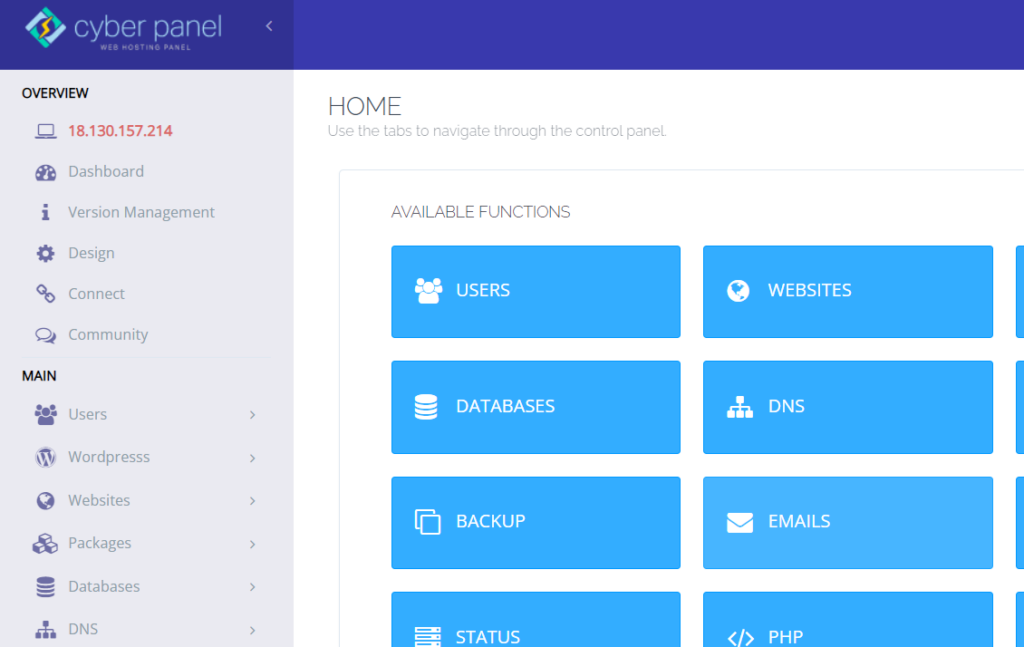Getting IP of a website is pretty simple, and it is one of the crucial ways in which websites communicate with the network devices, whereby every website has associated one or more IP addresses that have been used for the optimum exchange of data, and the Domain Name System (DNS) was actually created to make things relatively easy about accessing websites. It is of course much easier to remember a string of seemingly random integers than to remember the numerical IP addresses associated with a domain name. DNS steps in to convert that very friendly domain name into an IP address.
This is primarily because computers depend on these numerical IP addresses to locate and communicate with each other. So, when you think of getting the IP of a website, remember that it is the DNS system that smoothen mingles the human-friendly domain names with the numeric addresses. Thus, this process is vital for any normal “user-friendly” functioning internet so that websites can be quickly accessed and reached by users and network devices all over the world.
What is an IP Address?
It uses an IP address like a name tag to identify itself as a gadget on the web or a local network. An IP address is unique, just like your name, and an IP is a collection of rules governing the format of data transferred over the Internet or a local network.
IP addresses, in themselves, are the labels that enable data to be passed between machines on a network, which contain location information such that devices can be made accessible for communication. The internet needs to devise a system to identify numerous computers, routers, and webpages. A form of doing this is accomplished through IP addresses.
An IP address is constructed through several numbers separated through periods. The numbers in an IP address make up four numbers; for example, 192.158.1.38 is an example of an address. The list of numbers can vary between 0 to 255. Thus, the total of IP addressing is from 0.0.0.0 to 255.255.255.255.
IP Addresses Types
There are different types of IP addresses. There are also varied classes of IP addresses.
Get exclusive access to all things tech-savvy, and be the first to receive
the latest updates directly in your inbox.
Consumer IP addresses
Every person or organization that has an Internet access package will possess two kinds of IP addresses: private IP addresses and public IP addresses. The terms public and private address, refer to the location of a network; a private IP address is applied to a network, while a public IP address is applied outside of one.
Private IP addresses
A private IP address is assigned to each device connected to your network connection. It includes computers, smartphones, and tablets. And it also includes Bluetooth-enabled devices such as speakers and printers. With the growth of the “Internet of Things”, the number of IP addresses in your home would be increased. Your router must be able to detect each of these items individually, and many of them must be able to recognize one another. Consequently, your router generates private IP addresses for each device to produce a unique identifier on the network.
Public IP addresses
The public IP address is the first address assigned to your entire network. Even though each device connected has its IP address, they all fall under your network’s first IP address. Your ISP assigns your router a public IP address, which we talked about earlier. ISPs mostly possess a wide range of IP addresses to utilize in assigning addresses to their customers. Your public IP address is the address, in addition to which all devices outside of your internet network will identify your network.
Dynamic IP addresses
Dynamic IP addresses normally change periodically. ISPs buy a large block of IP addresses and assign them automatically to their customers. They downgrade them periodically and the older IP numbers are returned to the pool for others of their customers to be assigned. The rationale behind this is saving for the ISP. They do not have to perform some specific procedures to reassign an IP address of a user when they move houses etc. because that process is being done automatically with a routine transfer of the IP addresses. There are other security benefits since a dynamically changing IP address makes it less likely for hackers to gain access to your network interface .
Static IP addresses
The IP address that doesn’t change is called a static IP address. The network assigns an IP address, and once it has been assigned, the IP address does not change. Most people and business organizations do not require a fixed IP address, however, for those companies that intend to host their own servers, it is a must-have. This is because the IP addresses owned by the respective websites, as well as email addresses hosting them, are guaranteed to own a stable IP address; this is then a necessity if you intend other computers to find them on the internet regularly.
Shared IP addresses
Websites use shared hosting plans by cloud web hosting providers. These websites share the same server. Individual or small-business websites, where traffic levels are controllable and the sites themselves are constrained in terms of page count, etc., tend to be like this.
Dedicated IP addresses
A dedicated IP address is usually available with some addresses or web hosting services. This helps you to host your File Transfer Protocol (FTP) server. Hence makes obtaining an SSL certificate easier. Moreover, with a dedicated IP address, you can browse your website without the requirement of the domain name. It is useful when you have to test your website before its registration.
Methods to Get IP of a Website
If someone has less technical skills then, it is difficult to get the IP of a website.
There are three methods for getting IP of a website:
- Check your email: The server’s IP address is usually given in the company’s welcome email.
- Utilize Ping Command: You can use the CLI to ping the webserver and locate it.
- Global DNS Checker: Use the Global DNS Checker for IP Lookup tool on the internet.
Note: you can also go for DNS (A and AAAA) record lookup to check IP of website.

Check your Email for a Welcome Message
The IP address is mentioned in the welcome email issued by your hosting company. In case, you still cannot find it, contact the customer support of your company. With a popular web hosting control panel, CyberPanel you can easily check the IP at the top left corner of your dashboard.

Utilizing Ping Command
You have to use the command line for finding a IP address of a website.
Press Windows + R to open the Run (on Windows)
Now, search for cmd to open the command prompt.

In command prompt, enter the following command
ping <domain name>
You will see your domain’s IP

Using Global DNS Checker
For website IP, you can use a Global DNS checker.
Go to site24x7.com . Enter your domain name.

You will see your website’s IP address.
How to get IP address of the website on Android?
You can follow these steps:
- Open your preferred web browser.
- Type “ping” having space and write the domain name of the website in the browser’s address bar.
- Press Enter.
- You’ll see a screen displaying some information. Look for the line that says “PING [website’s domain name] ([IP address])”. The IP address written next to the website’s domain name is what you’re looking for.
FAQS
What is way to find the IP address of a website?
You can use various methods including commands and online tools.
What is the purpose of obtaining a website’s IP address?
It is valuable for tasks like troubleshooting, monitoring, and accessing blocked sites.
How can I get a website’s IP address on my Android device?
You can get it either through browser-based methods or apps.
Are there online tools available to get a IP address of a webiste?
Yes, there are online tools available to get IP address of a website without any technical know-how.
What is the “ping” command, and how does it help in getting an IP address?
The “ping” command tests the network by sending packets of signals on a specified domain or IP address. It helps in retrieving the IP address of a domain by displaying it when the ping request is sent to it.
Is it legal and ethical to acquire the IP address of any website?
Yes, acquiring a site’s IP address is lawful and ethical if meant to achieve a valid objective, such as troubleshooting, a networking task, or a general inquiry. An IP address used to hack into a website for illegal, unauthorized access is, on the other hand, illegal and unethical.
Conclusion
All websites require at least one IP address to communicate with other devices connected to the internet. However, it is impossible for anyone to memorize long sequences of numbers. That’s where the Domain Name System comes into play. DNS is like a translation device that works on your computer. It takes these easily recalled names of websites and converts them into all those pesky numerical IP addresses.
These numeric addresses are somewhat like the secret codes that computers use when chatting with each other online. So now, let’s see how we can get the IP address of a website. There are three easy ways to do this, and in this article, we’re going to walk you through all three methods step-by-step. So if you want to know how to get the IP of a website, then congratulations – you’ve come to the right place!
Related Content
Optimize Website Performance and Compliance with Google Fonts Checker



